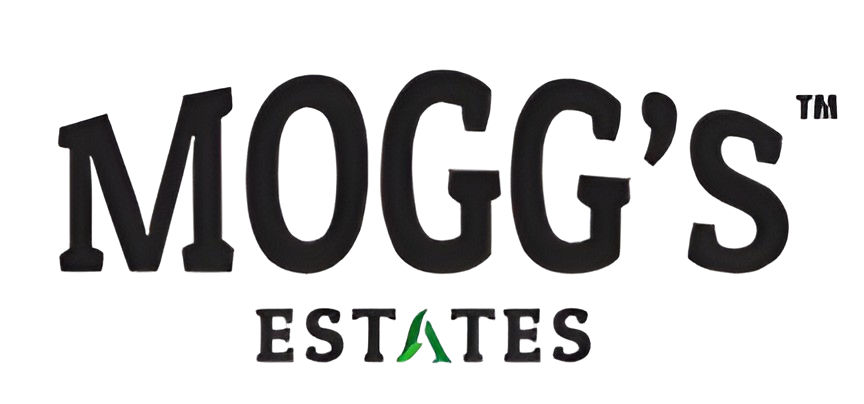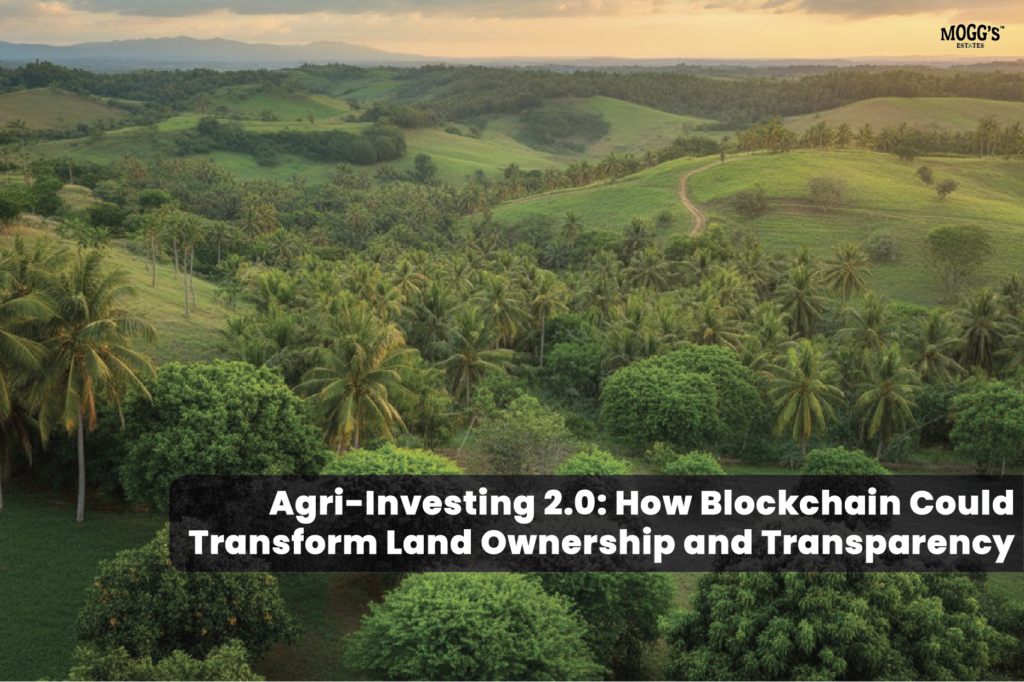For years, agricultural investing has been rooted in one of the world’s oldest assets: land. But while the soil may be ancient, the systems that manage it are stepping into a new digital era. Enter blockchain, a technology that is reshaping not just finance but also how we buy, sell, and secure farmland.
In today’s world, where farmland investment is becoming a preferred alternative to volatile assets, blockchain is redefining transparency, ownership, and investor confidence. Companies like Mogg’s Estates are well-positioned to be a part of this transformation.
The problem with traditional land ownership:
Agricultural investment has always had one major roadblock: lack of transparency.
Land records in India are often fragmented, paper-based, and vulnerable to disputes. Fraudulent sales, duplicate titles, and encroachments are common. Even today, verifying the authenticity of a piece of land can take weeks, often involving multiple intermediaries.
For investors looking at farmland as a wealth-building asset, this lack of clarity can be intimidating. You might buy a plot expecting peace and returns, only to discover that ownership records are unclear or outdated.
This is where blockchain-based land registries bring a game-changing solution.
What blockchain really means for farmland investors:
At its core, blockchain is a secure digital ledger that records transactions in a way that cannot be altered or erased. Think of it as a tamper-proof record book stored across multiple computers, ensuring that no single party can modify it.
When applied to land ownership:
- Every transaction, from sale to transfer, is permanently recorded.
- Ownership data becomes transparent and verifiable by anyone.
- Dependence on intermediaries is reduced.
- Land disputes are drastically minimized due to one reliable source of truth.
For investors in managed farmlands such as those offered by Mogg’s Estates, blockchain could mean owning a plot with absolute proof of title. It eliminates traditional pain points like title verification, manual transfer processes, and uncertain ownership tracking.
Smart Contracts: Automating trust and efficiency.
One of the most powerful features of blockchain is the use of smart contracts. These are self-executing agreements written into code that automatically carry out predefined terms when conditions are met.
Imagine this:
You invest in managed farmland through Mogg’s Estates. Once your payment is verified, a smart contract immediately updates your digital ownership record and triggers automated updates on your farm’s yield and maintenance status.
No waiting for paperwork. No dependency on intermediaries.
Every action is secure, transparent, and recorded in real-time.
Smart contracts can also manage rental agreements, crop-sharing partnerships, and profit distributions for co-owned farmlands. This means faster transactions, fewer disputes, and improved investor confidence.
Fractional farmland ownership made accessible:
Another significant opportunity blockchain introduces is fractional ownership.
At present, high-quality farmland can be costly for individual investors. Blockchain allows land to be digitally divided into smaller shares, represented by tokens. These tokens can be bought, sold, or traded while maintaining verified ownership records.
For example, a ₹50 lakh farmland can be divided into 100 tokens. Investors can buy as many as they can afford, similar to purchasing company shares. Blockchain ensures that ownership rights and profit-sharing ratios are completely transparent and protected.
This opens the door for young professionals, urban investors, and NRIs who want to invest in sustainable, income-generating land assets without taking on the burden of physical management.
This model aligns perfectly with Mogg’s Estates, which already manages the day-to-day farming operations, including cultivation, maintenance, and yield optimization. Investors only need to track their digital ownership and returns.
Eliminating land fraud and building trust:
Land fraud has been one of the biggest obstacles in India’s property market. Duplicate sale deeds, illegal encroachments, and misrepresented land titles have discouraged many potential investors.
Blockchain technology directly addresses this by offering a single verified version of the truth. Every ownership change or sale is timestamped and stored permanently in the blockchain. This means no fake documents, no backdating, and no alteration of history.
When every transaction is recorded in a decentralised ledger, the chance of fraud becomes nearly zero. This makes farmland investment not just profitable but also secure.
For a company like Mogg’s Estates, integrating blockchain in the future could mean offering investors verifiable proof of ownership through a digital token linked to the national land registry. That level of transparency builds unmatched investor trust.
Real-Time data and sustainable farm management:
Blockchain is not only about ownership. It can also integrate with IoT (Internet of Things) and data analytics to create innovative, data-driven farm management systems.
Imagine sensors on farmland that monitor soil moisture, nutrient levels, and crop health. This data can be securely recorded on the blockchain and accessed by investors or managers in real-time.
For example, an investor with Mogg’s Estates could view how their farmland is performing throughout the year, from rainfall data to yield updates. It turns agriculture into a transparent, data-backed investment rather than one based on assumptions.
This also supports sustainability. Verified data ensures that farming practices are eco-friendly, water-efficient, and aligned with long-term soil health.
Redefining the future of land investment:
Blockchain-driven farmland investment combines the best of both worlds: the stability of tangible assets and the transparency of modern digital systems.
It transforms ownership from being document-based to being data-based. It encourages investor participation through verifiable records, reduces conflicts through smart contracts, and enables small investors to enter the market through tokenised fractional ownership.
As the Indian government and private companies move toward digitised land records, the agricultural sector will see a surge in technology-driven trust systems. This creates new opportunities for investors who value accountability, efficiency, and sustainable returns.
Companies like Mogg’s Estates are already leading the shift toward modern farmland investment by combining traditional cultivation expertise with advanced management models. Integrating blockchain technology in the near future could further elevate their ability to provide investors with clear documentation, verified ownership, and consistent reporting.
Blockchain is more than just a buzzword for the agricultural industry. It represents a long-overdue transformation of how land ownership, investment, and management work.
By digitising records, enabling secure smart contracts, and supporting fractional ownership, blockchain can make farmland investing transparent, efficient, and accessible to all.
As investors increasingly look for sustainable, tech-driven assets, Mogg’s Estates stands out as a brand ready for the future — one that bridges traditional farming with cutting-edge innovation, ensuring that your investment in land is both meaningful and secure.




